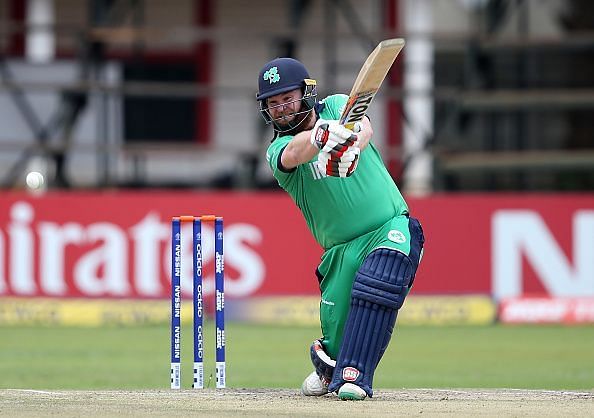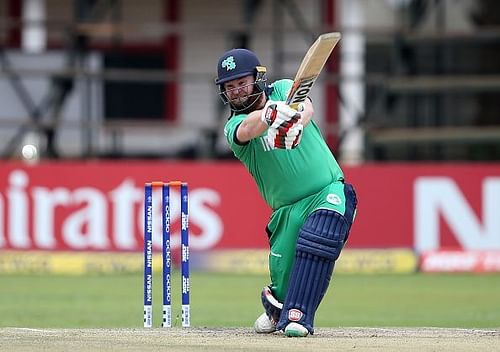
Ireland-Scotland T20I match ends in a tie; No Super Over played

Last night, Ireland and Scotland played out a high-scoring tie in a T20I match in the Netherlands T20I tri-series. Interestingly, the match didn't have a winner as there was no super over after the tie in spite of the ICC rules suggesting that a super over has to be played whenever a T20I match ends in a tie.
With seven runs needed for Ireland to win off the last over, Scotland bowler Safyan Sharif conceded just six runs and got the all-important wicket of Kevin O'Brien off the first ball to earn a tie for his team.
Opener Paul Stirling kept Ireland in the chase of 186 by scoring a 41-ball 81, his highest T20I score but couldn't take his team home in the chase. Earlier in the day, a fine fifty from the Scottish captain Kyle Coetzer, along with a quick-fire 46 from Callum MacLeod propelled Scots to 185/4 in 20 overs.
Ever since the T20 format came into existence, all the matches that ended in a tie, be it a domestic game or an international T20 game, determined the winners in various ways.
The bowl out was introduced to determine the winner in case of a tie and then, it was replaced by super over, where both the teams will have to bat for one over and the team with the highest score in the super over will be declared as the winner.
So far, as many as 10 T20I matches have ended in a tie and the nine other matches had a winner by either super over or bowl out. The reason behind both these teams not playing out a super over has not been revealed.
According to ICC's rulebook, the following procedure shall apply should the provision for a super over be adopted in any match.
1. Subject to weather conditions the Super Over will take place on the scheduled day of the match at a time to be determined by the ICC Match Referee. In normal circumstances, it shall commence 10 minutes after the conclusion of the match.
2. The amount of extra time allocated to the Super Over is the greater of (a) the extra time allocated to the original match less the amount of extra time actually utilised and (b) the gap between the actual end of the match and the time the original match would have been scheduled to finish had the whole of the extra time provision been utilised. Should play be delayed prior to or during the Super Over once the playing time lost exceeds the extra time allocated, the Super Over shall be abandoned. Here are some of the examples for this.
Imagine that the scheduled finish for the match is 5.00, 30 minutes extra time available, so scheduled finish time if the whole of the extra time provision is utilised is 5.30.
a) No extra time is utilised in the original match which overruns ten minutes and finishes at 5.10. The Super Over is scheduled to start at 5.20 with 30 minutes extra time available. It starts on time but is interrupted at 5.25. Play must resume by 5.55 otherwise the Super Over is abandoned.
b) 20 minutes of extra time was utilised, with the match scheduled to finish at 5.20, but it actually finishes at 5.10. Therefore the extra time allocated to the Super Over is the greater of a) 10 minutes (30 minutes extra time less 20 already utilised) and b) 20 minutes (the gap from the actual finish time of 5.10 and the scheduled finish had the full extra time been utilised of 5.30). The Super Over was due to start at 5.20, but is delayed by rain. It must, therefore, start by 5.40 or the Super Over is abandoned.
c) The match finishes at 5.40 (having started 30 minutes late and overrun by 10 minutes). There is no extra time allocated to the Super Over which should start at 5.50. Any delay or interruption after 5.50 means the Super Over is abandoned.